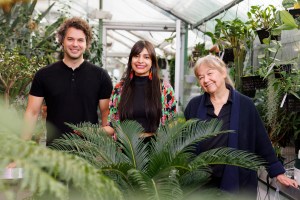Health
-

Break in the case for long COVID investigators
Research highlighting chronic inflammation opens path to treating illness that affects millions of Americans

-

The problem with the school smartphone debate
Study finds most districts already regulate devices. Is the real issue enforcement?

-
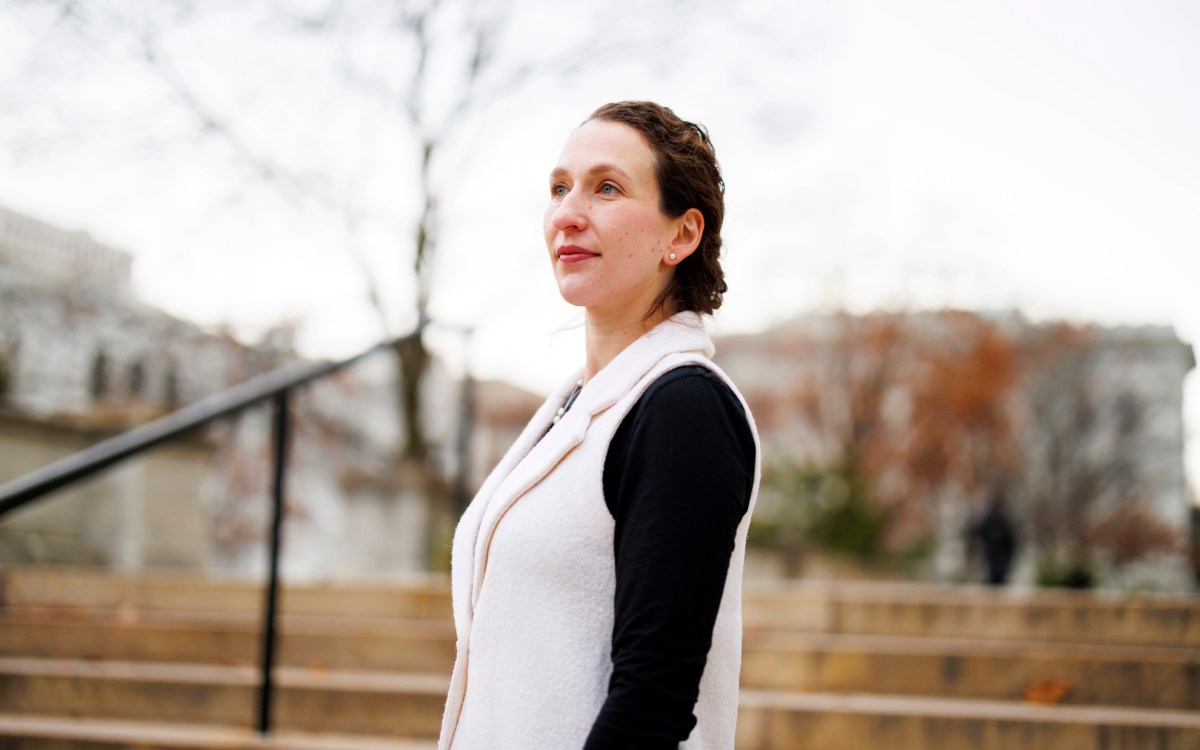
Just who gets a say at FDA public drug-approval hearings?
New research shows negative voices are relatively rare in drug approval hearings.
-

Your digital twin might save your life
AI, statistics offer new possibilities for personalized medicine
-
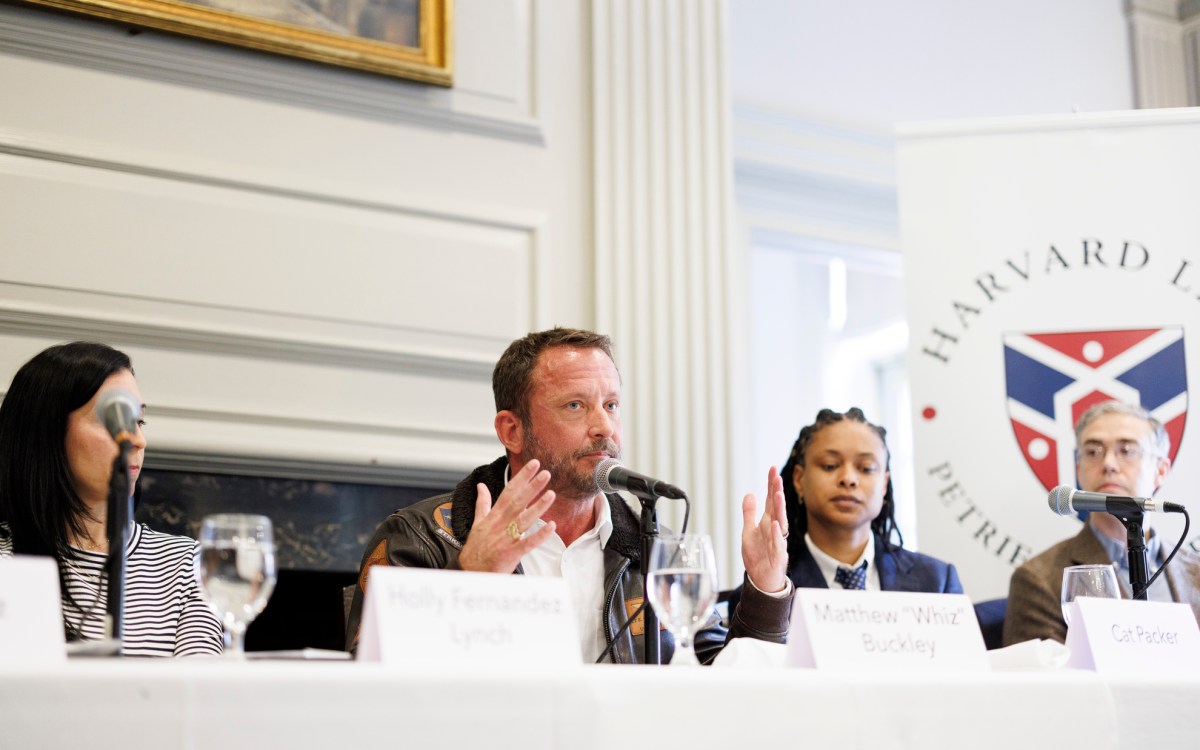
Time to legalize psychedelics?
Campus debate weighs therapeutic need vs. safety questions
-

How a toxin from the gut microbiome may help spark colorectal cancer
Findings suggest colibactin may be promising target for disease prevention

-
Potential treatment for muscular dystrophy
Harvard researchers report that by identifying and mimicking important developmental cues, they have been able to drive cells to grow into muscle fibers capable of contracting in a dish and multiplying in large numbers. This new method of producing muscle cells could offer a better model for studying muscle diseases, such as muscular dystrophy, and for testing potential treatments.
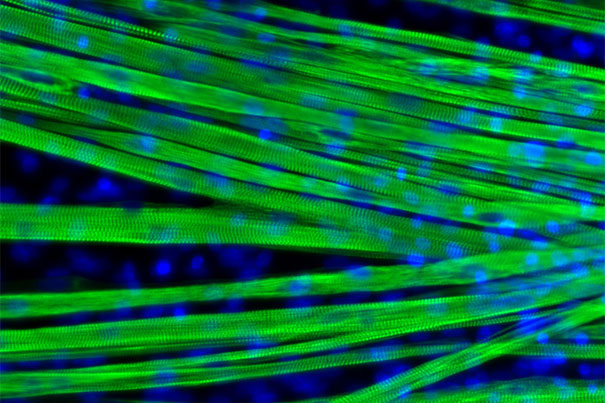
-
New hope in old viruses
Harvard Stem Cell Institute researchers at Massachusetts Eye and Ear have reconstructed an ancient virus that is highly effective at delivering gene therapies to the liver, muscle, and retina.
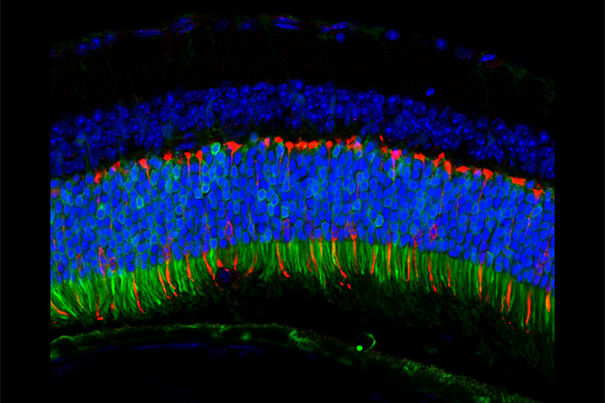
-
Inadequate hydration can lead to impaired cognitive, emotional function
Drinking enough water is essential for physiological processes such as circulation, metabolism, temperature regulation, and waste removal. More than half of all children and adolescents in the United States are under-hydrated — probably because they’re not drinking enough water, according to the first national study of its kind from the Harvard T.H. Chan School of Public Health.

-
Expanding the brain
New findings reveal how genomic imprinting can dramatically expand biological diversity, and could have important implications for understanding the brain.
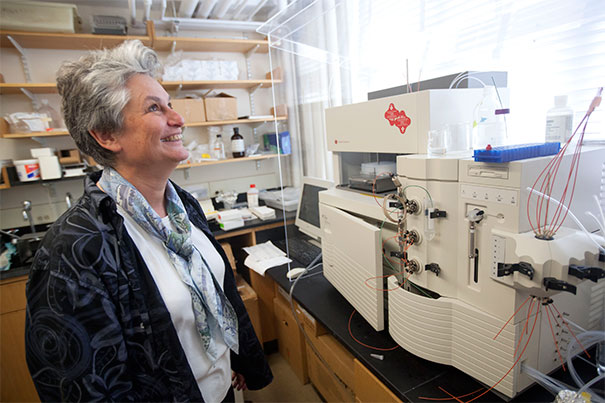
-
Hard-won lizards
Research on the evolutionary history of the anole lizard became an international adventure for Professor Jonathan Losos.
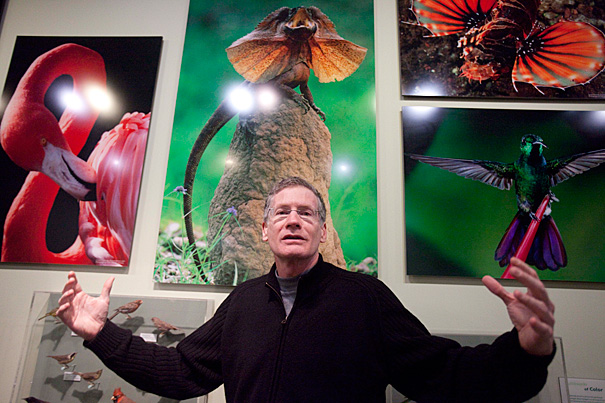
-
Recurrent ovarian cancer patients may have hope
Harvard researchers have found a gene therapy that delivers a protein that suppresses the development of female reproductive organs. This new treatment could improve the survival of patients with ovarian cancer that has recurred after chemotherapy. Recurrence happens 70 percent of the time and is invariably fatal.
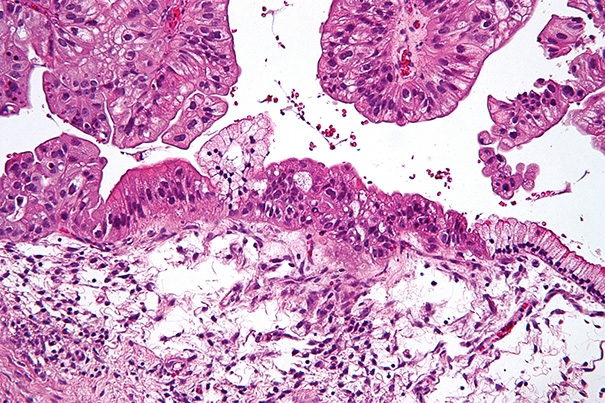
-
Zebrafish reveal drugs that may improve bone marrow transplant
Using large-scale zebrafish drug-screening models, Harvard Stem Cell Institute researchers at Boston Children’s Hospital have identified a potent group of chemicals that helps bone marrow transplants engraft, or “take.”
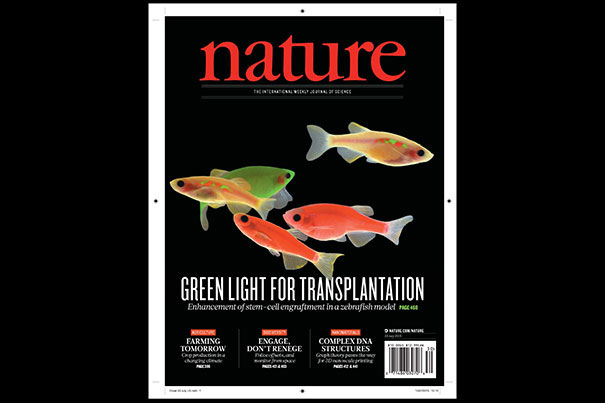
-
Keeping adults in the game
In response to a recent poll that found most adults who played sports when they were younger stopped doing so as they aged, a panel of experts convened at the Harvard T.H. Chan School of Public Health explored how to keep adults in the game.

-
Self-diagnosis on Internet not always good practice
Online symptom checkers can often be wrong in both diagnosis and triage advice, but they still may be useful alternatives to phone triage services and Internet searches.

-
Diagnosing Ebola in minutes
A new test can accurately diagnose the Ebola virus disease within minutes at the point of care.
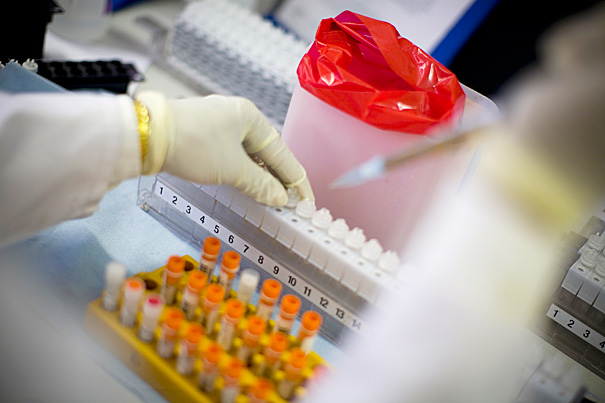
-
Alone with evolution
Efforts by Harvard faculty to understand island evolution form the centerpiece of a new exhibition at the Harvard Museum of Natural History.

-
Sequencing Ebola’s secrets
A global team from Harvard University, the Broad Institute, the U.S. Centers for Disease Control, and other institutions sequenced more than 200 additional Ebola samples to capture the fullest picture yet of how the virus is transmitted and changes over a long-term outbreak.
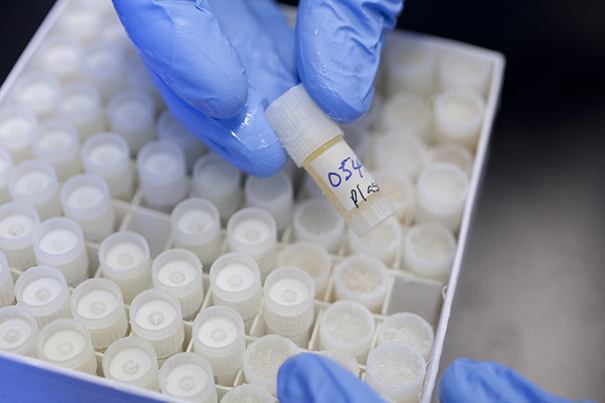
-
Another turning point for Obamacare
Panelists at the Harvard Chan School weighed the possible implications of the latest Supreme Court challenge to the Affordable Care Act.
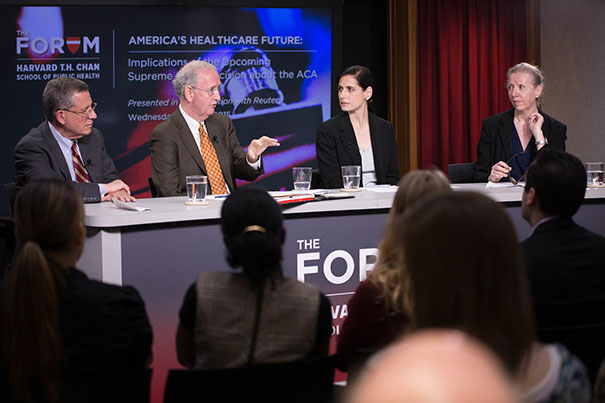
-
Coordinating against malaria
Leaders in the global fight to eradicate malaria are at Harvard this week for a leadership training course that explores many facets of the scientific underpinnings of the effort to eradicate malaria from the planet.
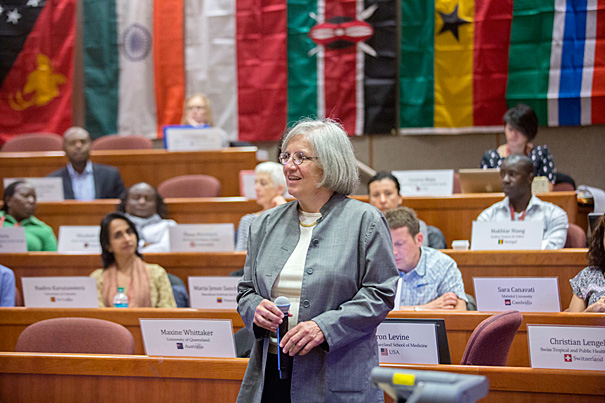
-
Cracking the egg
Mary Caswell Stoddard of Harvard’s Society of Fellows is bringing an interdisciplinary approach to her study of bird eggs.

-
Vital genes in fat production found
Scientists at Harvard Stem Cell Institute have found a way to both make more energy-burning human brown fat cells and make the cells themselves more active, a discovery that could have therapeutic potential for diabetes, obesity, and other metabolic diseases.
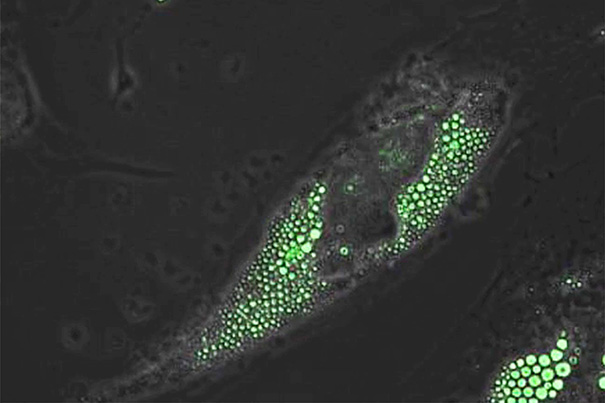
-
A dearth of nutrition in school lunches
About 200 people interested in improving the quality of meals served in America’s public schools gathered at Harvard to discuss topics ranging from getting wholesome food into schools to institutional barriers.
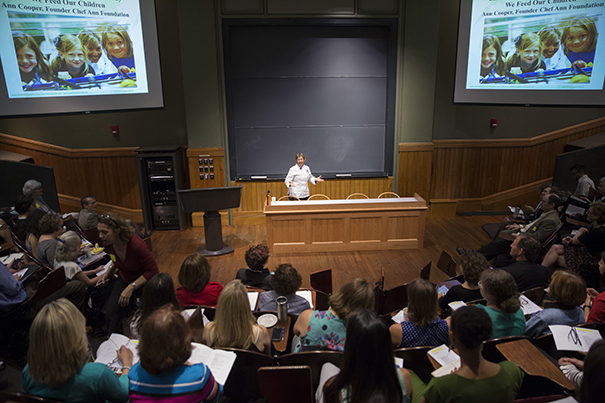
-
Confronting the creep of opioid abuse
Specialists in care and policy came together at the Harvard Chan School to trade ideas on combating opioid abuse.
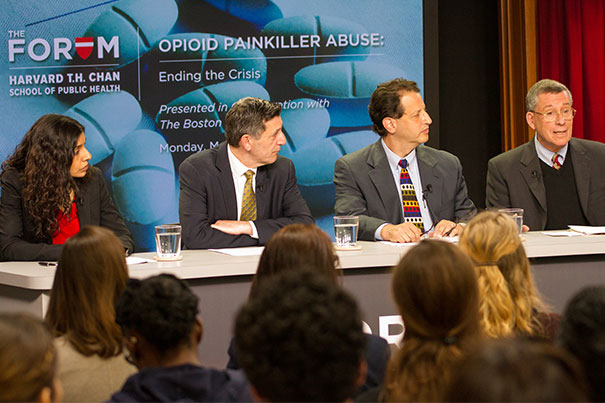
-
Changing the way genomes work
In the Wyss Institute’s inaugural podcast “Disruptive,” host Terrence McNally spoke with Pamela Silver and George Church about today’s breakthroughs in technology and modifications to an organism’s genome that can be conducted more cheaply, efficiently, and effectively than ever before.
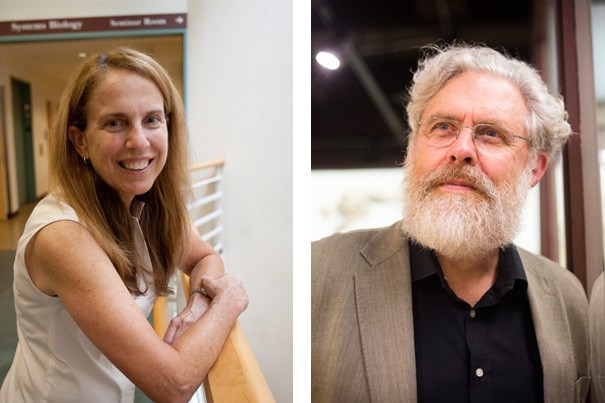
-
Leaving a beautiful scar
Feature on surgeon and violinist Terry Buchmiller as part of the Practice series.
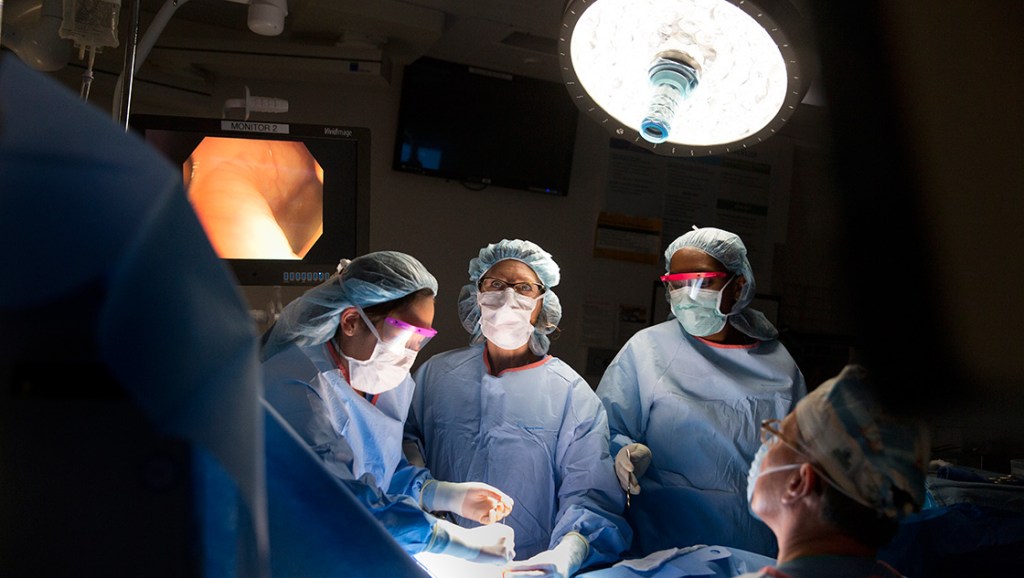
-
At Medical School, a late bloomer
Afamefuna Nduaguba, a Nigerian immigrant, overcame early struggles at Roxbury Community College to gain a bachelor’s degree from the University of Massachusetts, Boston, and now an M.D. from Harvard Medical School.
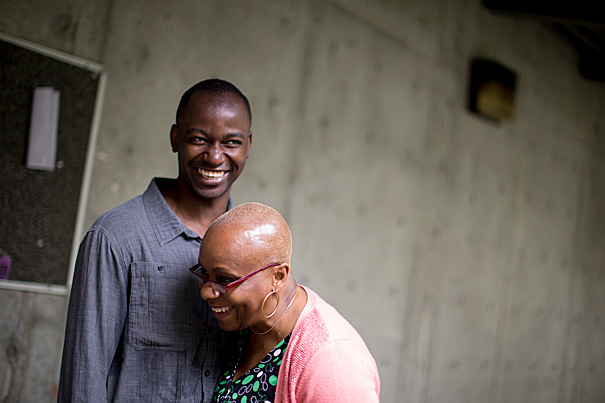
-
Improved accuracy in genome editing
A team of scientists has engineered a form of the genome-editing protein Cas9 that can be controlled by a small molecule and offers improved DNA specificity.
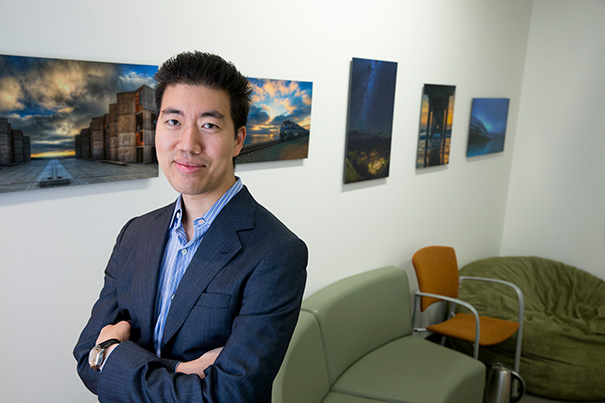
-
Creatures of habit
The motor cortex is critical to learn new skills, but may not be needed to perform them, a new Harvard study says.
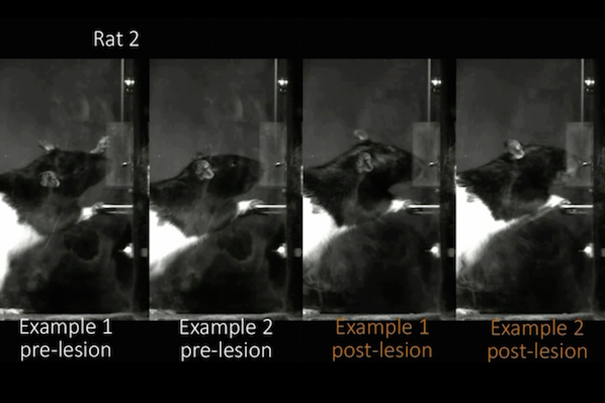
-
‘New clarity’ against Alzheimer’s
Rudolph Tanzi of Harvard Medical School, recently named to Time’s list of the most influential people in the world, talks about the promising future of Alzheimer’s research.
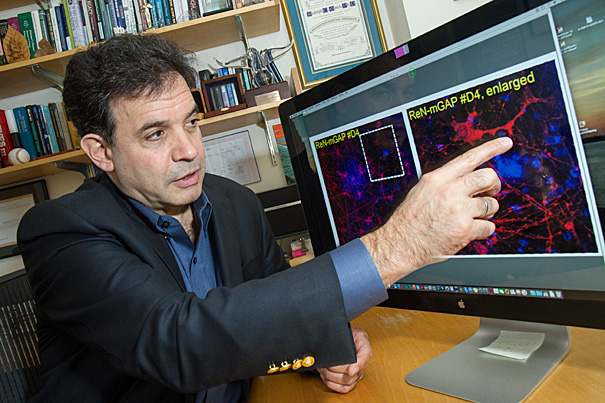
-
Meditation may relieve IBS and IBD
A small pilot study by Harvard-affiliated researchers finds symptom improvement and changes in expression of inflammation-associated genes in irritable bowel syndrome and inflammatory bowel disease patients who practice the relaxation response.

-
Insight into seeing
Harvard-affiliated researchers have been able to make a comparison of neurons in optic nerves to learn more about why some regenerate and others don’t.

-
Rapid evolution
As part of the Harvard Horizons Symposium, Ph.D. candidate Shane Campbell-Staton will discuss his work with the green anole lizard, which corroborates the fact that rapid evolutionary responses can be viewed in real time.

-
A home fit for a king
State wildlife biologists installed a peregrine falcon nesting platform high on Memorial Hall’s tower.

-
Promising stem cell therapy
Harvard Stem Cell Institute researchers at Massachusetts General Hospital have developed an “imageable” mouse model of brain-metastatic breast cancer and shown the potential of a stem-cell-based therapy to eliminate metastatic cells from the brain and prolong survival. The study, published online in the journal Brain, also describes a strategy for preventing the potential negative consequences of stem cell therapy.
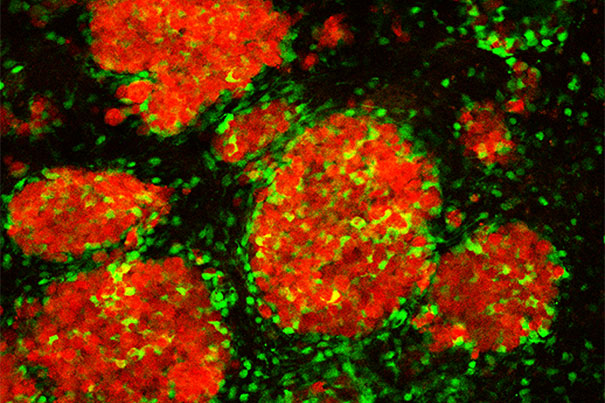
-
Why birds don’t crash
A new study shows that birds use two highly stereotyped postures to avoid obstacles in flight. The study could open the door to new ways to program drones and other unmanned aerial vehicles to avoid similar obstacles.



